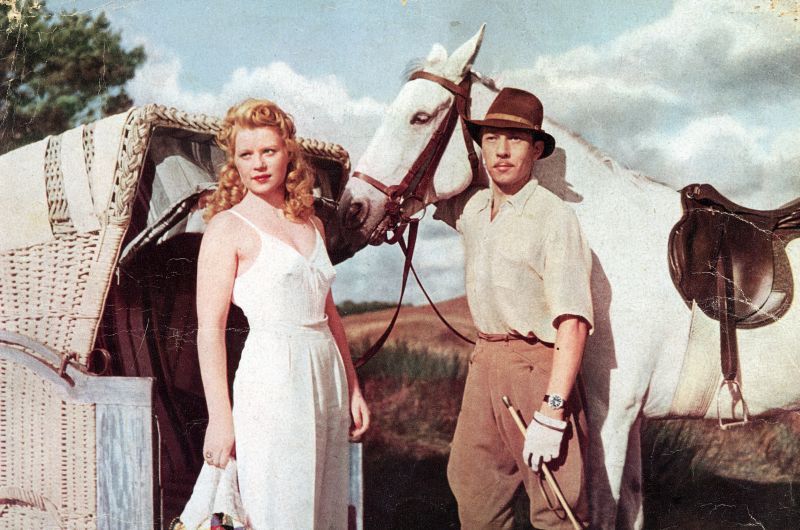[While this will only technically apply to those in California, I figured I would share with the wider world the line-up of the world melodrama series I run with my collaborator and friend Erik, for any of those who need some things to be watching, or even better, who want to follow along week by week. When time permits, I'll write up reflections on them as they go. All are relatively easy to track down. If anyone really can't find something via the channels I need not spell out, let me know, and I'll try to find a way to get it to you. Omnia sunt communia, especially a century's worth of tears and bareback horseback riding.]
You, death's sweetest and most secretly anticipated pleasure.
One of only a few color films produced by the Third Reich during World War II, Veit Harlan’s Opfergang is probably the most Nietzschean melodrama you will ever see. Adapted from Rudolf Georg Binding’s 1911 novella, Opfergang depicts the conflicting allegiances and desires stirred up for and by Albrecht Froben (Carl Raddatz), wealthy shipping magnate recently returned from a mission for the German Colonial Association. Engaged to his hyperbolically Teutonic cousin, Octavia (Irene von Meyendorff), whose immediate family likes to read Nietzsche to each other in darkened salons in the middle of the day, Albrecht soon finds his attentions diverted by a free-spirited, skinny-dipping, and bow-and-arrow-wielding Swede named Äls (Kristina Söderbaum), whose outer vitality masks a rare blood disease that threatens her life. There’s no escape from morbidity and imminent destruction for Albrecht, Octavia, or Äls it seems, though the complicity of each in playing out this love triangle to its end becomes downright pathological by the finale. Made at a point in the war in which the Nazis could see their defeat on the horizon, Opfergang is melodrama as death-rattle. Come for the bareback feats of beach archery, stay for the hallucinatorily telepathic tête-à-têtes. As ever, not to be missed.
[For those in California, tomorrow night, Santa Cruz. Any and all are welcome.]
[For the record, last week was this, which is an alarming, remarkably funny and potent film, that can be tracked down via Criterion:

